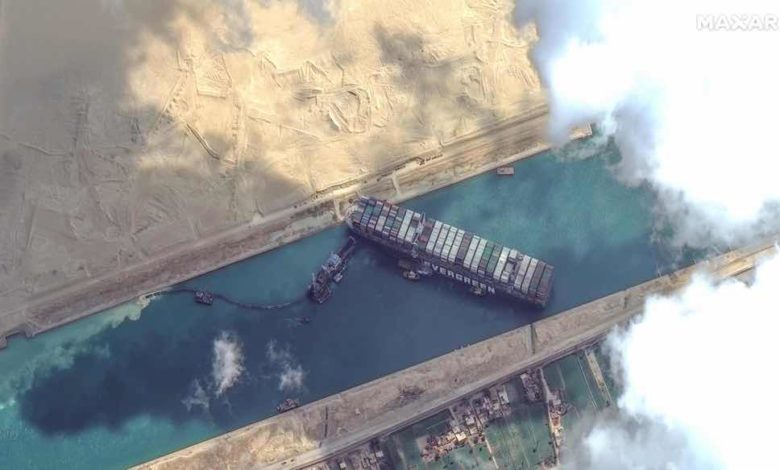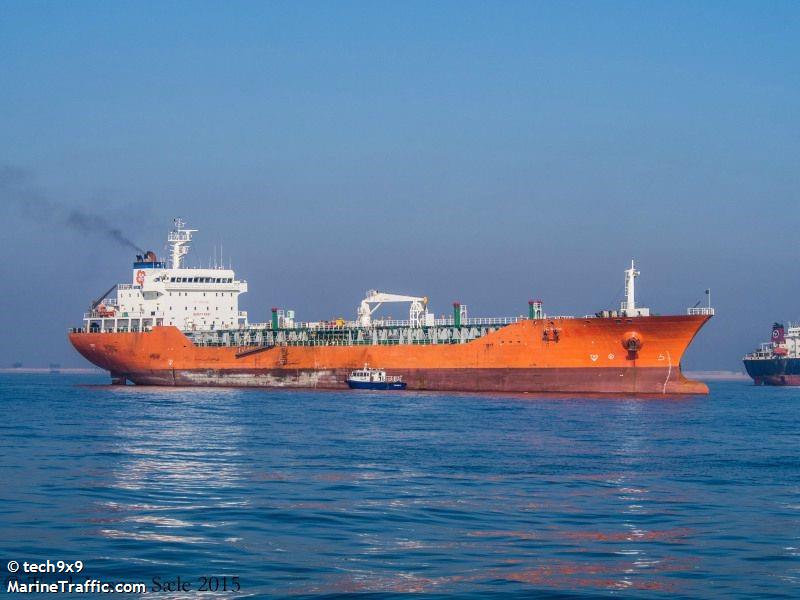Ships reroute en masse, Suez authorities pin hopes on this weekend’s tides

Ships are now heading in ever growing numbers towards the Cape of Good Hope to avoid the snarl-up in the Suez Canal with many operators warning the blockage caused by the 20,388 teu Ever Given could last a considerable amount of time.
Mediterranean Shipping Company (MSC), the world’s second largest containerline, announced the immediate rerouting of 11 ships it operates with 2M partner Maersk, while Hapag-Lloyd has shifted six towards southern Africa. South Korea’s HMM has moved quickest, sending a sizeable swathe of its Asia-Europe fleet to the Cape and tellingly, Evergreen, which operates the stricken Ever Given, is also rerouting vessels.
Splash reported yesterday on other ship types – including bulk carriers, LNG carriers and product tankers – all taking evasive action.
In a release from its Geneva headquarters last night, the Diego Aponte-led firm stated of the Suez blockade: “MSC expects this incident to have a very significant impact on the movement of containerized goods, disrupting supply chains beyond the existing challenges posed by the COVID-19 pandemic.”
MSC has also warned of a fake notice circulating in the market which erroneously states that the company is not taking any bookings for cargo transportation.
Concern is growing for the wellbeing of thousands of animals stuck along the hot waterway
“MSC wishes to reassure customers that we are open for business and that there is no worldwide stoppage of bookings,” the company stressed.
The container segment is the shipping sector most under stress from Tuesday’s grounding of the Ever Given. Containerships account for 53% of all goods that flow through the key artery linking Asia with Europe.
Analysts at Sea-Intelligence in Copenhagen have crunched the numbers to work out how much box tonnage would be soaked up in the event of prolonged closure of the canal and a subsequent shift en masse to the Cape of Good Hope.
“In order to re-route the cargo around Africa – or through Panama in some cases for the Asia-US East Coast – this will absorb an amount of carrying capacity equal to 6% of the globally available capacity,” a new report from Sea-Intelligence suggests. Converting this into a nominal fleet equivalent, then 6% of the global fleet is equal to 1.48m teu of capacity – the same as 74 ultra-large 20,000 teu container vessels.
“It is evident that such an amount of capacity absorption will have a global impact and lead to severe capacity shortages. It will impact all trade lanes, as carriers will seek to cascade vessels to locations where the find they have the greatest need,” Sea-Intelligence warned, going on to add: “In the short term it is not possible to build more vessels to solve the problem – the only viable option would be to speed up the vessels. This can partially alleviate the problem, but far from solve it. In this case, increasing speed from 17 to 20 knots would reduce the impact on the global fleet from 6% to 5.2%. Going full throttle at 22 knots would still only reduce the impact to 4.8%.”
A total of 276 ships were at anchor waiting to transit the canal this morning, up from 237 on Friday, and 156 the day prior as anchorages fill up rapidly. The canal handled an average of 51 transits a day last year, but has the capacity to double that throughput if necessary.
Concern is growing for the wellbeing of thousands of animals stuck along the hot waterway with many livestock carriers caught up in the traffic jam.
Authorities are pinning their hopes on using the tides to shift the giant 199,629 dwt vessel this weekend. An update from local agent Leth Agencies at around midnight gave some unconfirmed hope that the ship is closer to being dislodged. Splash is attempting to verify the claims made in the tweet below.
Turkey on Friday offered to send a tugboat to help while the United States also said it was ready to send support, including a team of US Navy experts.
“We have equipment and capacity that most countries don’t have and we’re seeing what we can do and what help we can be,” US president Joe Biden told reporters.


 could last a considerable amount of time.
could last a considerable amount of time.
Ships need deep enough waters and shipowners need deep enough pockets.
Capetown looking at a revival now?
Actually I was wondering about the vessels taking the long way ’round Africa. Perhaps they’ll make bunker and provisioning stops along the way, something I think the port operators will appreciate.